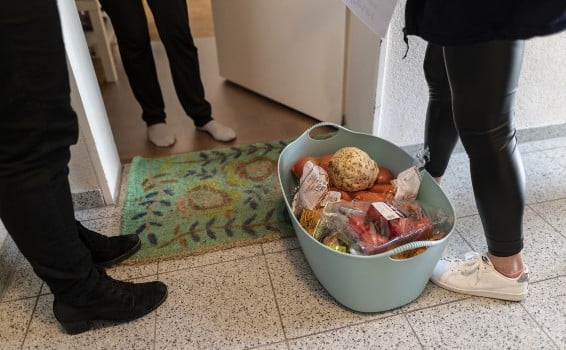Researchers at the Basel Institute of Commons and Economics, led by sociologist Alexander Dill, asked participants between May and September this year to mark on a scale of 1 (low) to 10 (very high) how they rate the helpfulness or hospitality of people in their neighbourhood.
Germans’ friendliness was rated better this year by the respondents, with 6.9 points compared to 6.6 points last year.
The social climate was also rated better with 7.1 points compared to the previous year (6.7).
Helpfulness experienced by the respondents in everyday life also increased: from 7 in 2019 to 7.3 points this time around.
READ ALSO: How people in Germany are showing their solidarity during the corona crisis
Germany not rated top for friendliness
However, Germany did not make it into the top 20 states in the international comparison, which is led by Thailand and Tanzania with values of around 9 points for friendliness.
Although the federal and state governments placed restrictions on personal contact in order to contain the coronavirus pandemic, the score for hospitality climbed this year from 6.2 to 6.7 points.
This backs up a trend that the Bertelsmann Stiftung identified in a representative survey last summer.
According to that survey, the proportion of people who consider social cohesion in Germany to be at risk fell from 46 percent in February this year to 36 percent in May and June.
The Basel Institute of Commons and Economics publishes its annual World Social Capital Monitor and is registered as a partner for UN sustainability goals.
The results of the survey are not representative, if only because of the anonymous nature of the survey, as age groups are not weighted according to their share of the population.
However, in the opinion of the researchers, the results are nevertheless meaningful, as can be seen from the usually very small deviation in the individual answers.
Dill is a critic of international rankings that looks solely on indicators such as per capita income or infrastructure.
Brazil and India are among the countries that have improved their social climate this year according to the World Social Capital Monitor, even though they have been heavily affected by the pandemic.



 Please whitelist us to continue reading.
Please whitelist us to continue reading.
Member comments